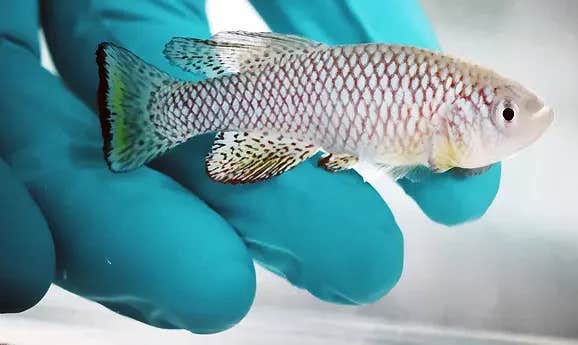Life-changing discovery could revolutionize treatment for children with multiple sclerosis
The current treatment options available for children with MS are limited, with only one therapy being classified as highly effective.

The current treatment options available for children with MS are limited, with only one therapy being classified as highly effective. (CREDIT: Creative Commons)
A groundbreaking research study, considered the largest of its kind worldwide, has uncovered a crucial finding regarding children diagnosed with multiple sclerosis (MS).
According to the study conducted at the Royal Melbourne Hospital (RMH), it was discovered that early treatment with high-efficacy therapies, similar to those used for adults, yields better outcomes for pediatric MS patients.
The current treatment options available for children with MS are limited, with only one therapy being classified as highly effective. However, the observational study from RMH suggests that administering high-efficacy treatments to pediatric patients during the early stages of their diagnosis can significantly mitigate the risk of developing severe disabilities later in life.
Tracking disability states against time in the study. (CREDIT: the Lancet Child and Adolescent Health)
Dr. Sifat Sharmin, a Research Fellow at RMH's Neuroimmunology Centre and the University of Melbourne's Department of Medicine, highlighted the findings of the study, stating, "We found that patients who were treated with high-efficacy disease-modifying therapies during the initial phases of their disease benefitted the most compared to patients who were not treated."
Based on the research findings, Dr. Sharmin emphasized the importance of early intervention, stating, "Patients with pediatric-onset multiple sclerosis should be treated early in the disease course, when the disability is still minimal, to preserve neurological capacity before it’s damaged."
The observational study analyzed data from over 5000 individuals diagnosed with MS during childhood over the past three decades. The data was sourced from various international registries, including MSBase, which covers 41 countries, and a national registry in Italy where the disease is prevalent.
Related News
By comparing the treatment strength with the severity of the disease later in life, the study concluded that patients treated with highly effective therapies early in their diagnosis were less likely to experience worsening disability. These therapies involve potent antibodies that modulate the immune system's response.
The findings of the study were recently published in the esteemed journal, the Lancet Child and Adolescent Health.
Furthermore, the research confirmed that any form of treatment, even low-efficacy options, was superior to no treatment at all.
Dr. Sharmin, who spearheaded the study, acknowledged the rarity of pediatric-onset MS, with only about four to eight percent of MS patients being diagnosed before the age of 18. She underscored the significance of the study, stating, "This is the largest study of its kind for pediatric MS. We hope this may have some policy implications so children with MS can access the most effective therapies as early as possible."
Multiple sclerosis is a chronic condition characterized by the immune system attacking the brain and spinal cord. Currently, there is no cure for the disease.
Symptoms of Multiple Sclerosis
According to the Mayo Clinic, multiple sclerosis signs and symptoms may differ greatly from person to person and over the course of the disease depending on the location of affected nerve fibers.
Symptoms often affect movement, such as:
Numbness or weakness in one or more limbs that typically occurs on one side of your body at a time, or your legs and trunk
Electric-shock sensations that occur with certain neck movements, especially bending the neck forward (Lhermitte sign)
Tremor, lack of coordination or unsteady gait
Vision problems are also common, including:
Partial or complete loss of vision, usually in one eye at a time, often with pain during eye movement
Prolonged double vision
Blurry vision
Multiple sclerosis symptoms may also include:
Slurred speech
Fatigue
Dizziness
Tingling or pain in parts of your body
Problems with sexual, bowel and bladder function
For more science and technology stories check out our New Discoveries section at The Brighter Side of News.
Note: Materials provided above by The Brighter Side of News. Content may be edited for style and length.
Like these kind of feel good stories? Get the Brighter Side of News' newsletter.



